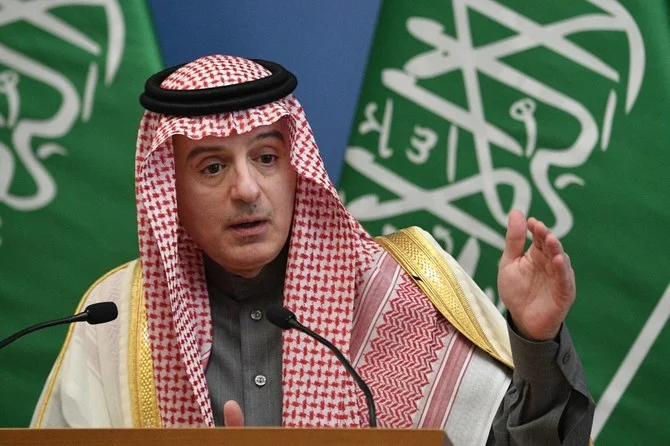
- ARAB NEWS
- 03 Jul 2025

Arab News
DUBAI: Adel Al-Jubeir, Saudi Arabia’s Minister of State for Foreign Affairs, has hit back against allegations the Kingdom was responsible for higher US gas prices, and instead said that America’s inadequate refining capacity was behind the uptick in costs.
“Saudi Arabia does not politicize oil or oil decisions. Oil is not a weapon… we look at oil as a commodity and we look at all this is important to the global economy in which we have a huge stake,” Al-Jubeir said in an interview with Fox News.
“The idea that Saudi Arabia would do that would do this to harm the us or to be in any way politically involved is absolutely not correct at all. With due respect the reason you have high prices in the United States is because you have a refining shortage that has been in existence for more than 20 years, you haven’t built refineries in decades,” Al-Jubeir told Fox News.
US gasoline prices rose sharply early this year due to high demand and tight global refining supplies, but began to drop after peaking in June. The national average is now up 20 cents from its mid-September lows of $3.67 a gallon, largely driven by gains in the Midwest and West Coast.
US oil refiners were using 91 percent of their capacity as of early October, but overall US refining capacity has declined since the coronavirus pandemic crushed demand in early 2020, industry estimates show.
“You have a number of refineries in the Midwest that were shut down. It is a result of this shortage of refining capacity that you have a shortage of gasoline and increase in the price of gasoline, it has nothing to do with the fundamentals of crude oil supply and demand,” Al-Jubeir explained.
Al-Jubeir added that OPEC member nations, plus Russia, were “very committed to ensuring stability in the oil markets to the benefit of consumers and producers.”
“Over the past year when we saw shortages, we increased our all production gradually. Now, we are seeing – we meaning the 22 countries that make up OPEC plus – we’re seeing shortages, we are seeing headwinds in terms of geopolitics, we’re seeing headwinds in terms of growth rates and slowdown in economies throughout the world and we want to make sure that we act in a pre-emptive fashion to ensure that we don’t have a collapse of the energy markets, which would be detrimental not only to producers but also to consumers and the global economy,” he said, after facing criticisms particularly from US about the group’s decision to oil production from November.
Al-Jubeir also downplayed speculations that oil prices would shoot up because of OPEC plus’s production cuts: “The decision was unanimous. We saw… a reduction in the demand for crude oil going forward and there were multiple factors that would have an impact on the supply/demand fundamentals and we wanted to make sure that we were preemptive or proactive and that we avert a potential collapse of the energy markets that would not benefit consumers or producers.”
“We will continue to watch the situation carefully as we have over the past year and we will determine what the market needs. And we will make decisions in accord with that as we have not only over the past year, but over the past decades.”